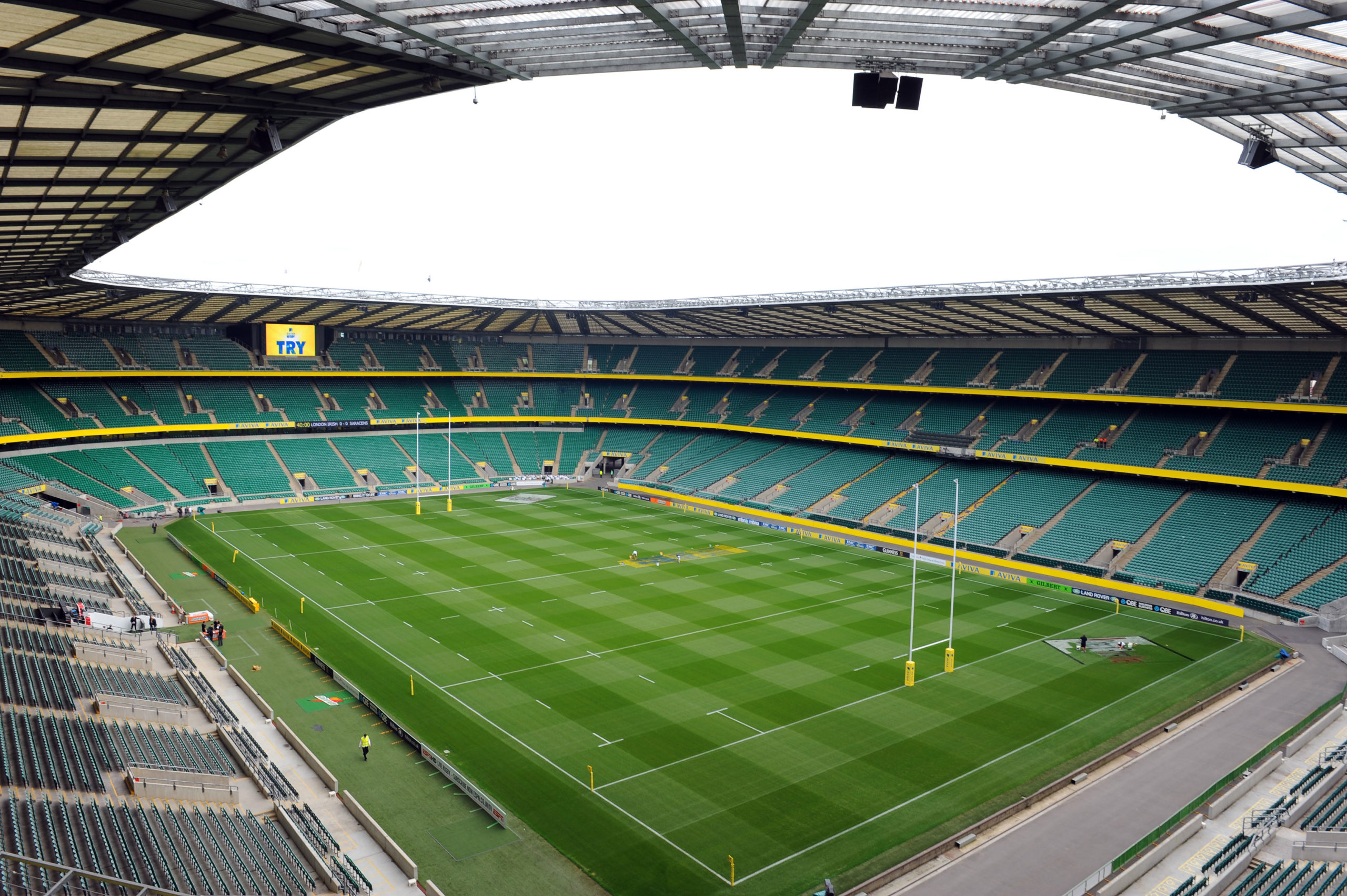
France is getting ready to welcome the world for the 2023 Rugby World Cup, which will be the second time they host the tournament after 2007. The event will mark 200 years since the invention of rugby and will feature 48 matches across nine host cities: Lille, Saint-Etienne, Lyon, Marseille, Nice, Toulouse, Bordeaux, Nantes, Paris, and Saint-Denis.
The organizers of the Rugby World Cup 2023 aim to create a festive and inclusive atmosphere that goes beyond sport and celebrates the values of rugby: solidarity, respect, and teamwork. They expect to welcome 600,000 foreign visitors and offer them a rich and diverse cultural experience.
The Rugby World Cup 2023 will also have a strong social and environmental impact, as it will support various initiatives to promote education, health, and sustainability. The event will showcase France’s commitment to reducing its carbon footprint and enhancing its biodiversity.
A tour of the host stadiums and cities
The Rugby World Cup 2023 will take place in nine stadiums across France, each with its history and charm. Here is a brief overview of each venue and city:
- Stade de France, Saint-Denis: The largest stadium in France with a capacity of 80,000 seats, it will host the opening match between France and New Zealand, as well as three other pool matches, two quarter-finals, one semi-final, and the final. Saint-Denis is a suburb of Paris that boasts a rich cultural heritage, including the Basilica of Saint-Denis, where most of the French kings are buried.
- Stade Pierre Mauroy, Lille: The home of the Lille OSC football club, it can accommodate 50,000 spectators and can be transformed into different configurations thanks to its retractable roof and movable pitch. It will host four pool matches, including France vs. Uruguay. Lille is a vibrant city in northern France that offers a mix of Flemish and French influences as well as a renowned gastronomy and art scene.
- OL Stadium, Lyon: The home of Olympique Lyonnais football club, it opened in 2016 and has a capacity of 59,000 seats. It will host four pool matches, including Australia v Georgia and Wales v Fiji. Lyon is the third-largest city in France and a UNESCO World Heritage Site that is famous for its cuisine, architecture, and cultural events.
- Stade Vélodrome, Marseille: The home of Olympique de Marseille football club, it is the oldest stadium in France and can hold 67,000 fans. It will host four pool matches, including England vs. Argentina and South Africa vs. Scotland, and two quarter-finals. Marseille is the second-largest city in France and a Mediterranean port that offers a diverse and cosmopolitan atmosphere, as well as stunning natural landscapes.
- Stade de la Beaujoire, Nantes: The home of FC Nantes football club, it has a capacity of 35,000 seats and will host three pool matches, including Ireland v Tonga and Japan v Chile. Nantes is a city in western France that is known for its cultural and artistic dynamism, as well as its historical and architectural heritage.
- Allianz Riviera, Nice: The home of OGC Nice football club, it opened in 2013 and can accommodate 36,000 spectators. It will host three pool matches, including Wales v Portugal and England v Japan. Nice is a city on the French Riviera that attracts visitors with its sunny climate, seaside promenade, and artistic flair.
- Stade Geoffroy-Guichard, Saint-Etienne: The home of AS Saint-Etienne football club, it has a capacity of 42,000 seats and will host three pool matches, including Italy v Namibia and Australia v Fiji. Saint-Etienne is a city in central France, renowned for its design and innovation culture and its natural surroundings.
- Stadium de Toulouse, Toulouse: The home of Stade Toulousain rugby club, it has a capacity of 33,000 seats and will host three pool matches, including New Zealand vs. Namibia and France vs. Namibia. Toulouse is the fourth-largest city in France and a hub of aerospace and technology industries, as well as a city of art and history.
- Stade de Bordeaux, Bordeaux: The home of Girondins de Bordeaux football club, it opened in 2015 and can host 42,000 fans. It will host five pool matches, including South Africa vs. Romania and Wales vs. Fiji. Bordeaux is a city in southwestern France, famous for its wine production and elegant architecture. It is listed as a UNESCO World Heritage Site.
These are the venues and cities that will welcome the Rugby World Cup 2023 and offer a unique and unforgettable experience to the players and fans.
Rugby World Cup 2023: The matches and dates you don’t want to miss
The Rugby World Cup 2023 will kick off on September 8 and end on October 28, with 48 matches to be played across nine cities in France. The tournament will feature 20 teams divided into four pools of five, with the top two teams from each pool advancing to the quarter-finals. Here are some of the highlights of the Rugby World Cup 2023 schedule that you should mark on your calendar:
- France v New Zealand, September 8, Stade de France, Saint-Denis: The opening match of the tournament will be a blockbuster clash between the hosts and the three-time champions. The two teams have a long and storied history, having met seven times at the Rugby World Cup, including two finals. The All Blacks have won six of those encounters, but France has pulled off some famous upsets, such as the 43-31 semi-final victory in 1999 and the 20-18 quarter-final triumph in 2007. Will France spoil New Zealand’s party again, or will the All Blacks start their campaign with a bang?
- England vs. Argentina, September 9, Stade Vélodrome, Marseille: The first match in Pool D will see England face Argentina in a rematch of their 2019 encounter, which England won 39-10. However, the Pumas have shown their potential by beating New Zealand for the first time in 2020 and reaching the semi-finals in 2007 and 2015. England will need to be wary of Argentina’s physicality and flair, while Argentina will hope to repeat their heroics of four years ago when they beat France in their opening match.
- South Africa vs. Ireland, September 23, Stade de France, Saint-Denis: The defending champions, South Africa, will take on Ireland in a crucial match in Pool B. The Springboks have not played a Test match since lifting the Webb Ellis Cup in 2019 due to the COVID-19 pandemic, while Ireland has been inconsistent in recent years. However, both teams have plenty of talent and experience and will be eager to make a statement in their first meeting at the Rugby World Cup.
- Australia v Wales, September 29, Stade de la Beaujoire, Nantes: Another intriguing match in Pool C will see Australia face Wales, who have met at every Rugby World Cup since 1987. The Wallabies have won seven of those matches, but Wales have won the last two, including a thrilling 29-25 victory in 2019. Both teams are undergoing a rebuilding phase under new coaches and will be keen to prove themselves on the big stage.
- Japan v England, October 8, Stade de Nice, Nice: The final match of the pool stage will see Japan take on England in what could be a decisive game in Pool D. Japan stunned the world by reaching the quarter-finals for the first time in 2019, beating Ireland and Scotland along the way. England was equally impressive, reaching the final after defeating Australia and New Zealand. The two teams met in the pool stage in 1987 and 2019, with England winning both times. However, Japan will hope to cause another upset and challenge England’s dominance.
These are just some of the exciting matches that await rugby fans at the Rugby World Cup 2023. The knockout stage will also feature some mouth-watering clashes between the best teams in the world. Don’t miss this opportunity to witness history being made at rugby’s biggest event.
If you want to be part of the Rugby World Cup 2023 and enjoy the best rugby action and culture that France has to offer, don’t hesitate to buy your Rugby World Cup 2023 tickets now. Don’t miss this chance to join the celebration of rugby’s bicentennial and witness history.


British and Irish Lions
Charlie Elliott: The 17 backs I would select for the British and Irish Lions

British and Irish Lions
Charlie Elliott: The 21 forwards I would select for the British and Irish Lions squad



















You must be logged in to post a comment Login